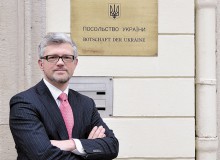Germany still cannot get over attacks on women committed by asylum seekers in Cologne on New Year’s Eve. As recently reported by the city’s police, their list of crimes committed there on that night includes 516 offenses now, of which 40 percent involved sexual harassment. A later report said that of 31 individuals arrested in connection with New Year’s Eve crimes, 18 had the status of asylum candidates in Germany. Videos recorded directly during the Cologne events were found on phones owned by the detainees. As stated in the police, the attacks involved nine migrants from Algeria, eight from Morocco, five Iranians, four Syrians as well as two German citizens, one Serb and one US citizen.
On the one hand, the population is growing dissatisfied with the government policy which saw Germany taking in almost a million refugees, and numerous anti-migrant rallies were held in cities all over the nation on January 9 and 10. On the other hand, some citizens are starting to commit mob attacks on migrants themselves as they express dissatisfaction with the way the investigation is carried out. As it often happens in such cases, heads have started to roll. In particular, Cologne police president Wolfgang Albers resigned because of criticism to which he was subjected by the public.
Therefore, German Chancellor Angela Merkel has proposed to simplify the deportation of immigrants who have committed crimes after the Cologne incident. In particular, the chancellor’s January 12 speech stated also the need to reduce significantly the number of refugees and improve control measures. According to her, Europe is faced with unexpected challenges. “We are vulnerable, as we see, because we do not yet have the order, the control, that we would like to have,” Merkel was quoted as saying by Reuters news agency.
COMMENTARY
“NO SUCH BRAZEN AND LARGE-SCALE ATTACK ON HUMAN DIGNITY HAPPENED BEFORE IN GERMANY’S RECENT HISTORY”
Andrii MELNYK, Ambassador of Ukraine to Germany, Berlin:
“The tragic events of New Year’s Eve in Cologne and other cities have not only shocked the German civic activists and politicians, they were a real shock for the whole society. No such brazen and large-scale attack on human dignity happened before in Germany’s recent history. The vast majority of criminal suspects, especially those accused of mass sexual assaults on women, are asylum seekers or illegal migrants from Arab countries. Thus, attitudes regarding refugees have changed radically in the country, and political debate has been radically reframed as well. Both government coalition parties, the CDU/CSU and the SPD, immediately expressed their willingness to take decisive action, in particular to strengthen the punishment for such offenses, as well as streamline the deportation procedures for resident foreigners and refugees, with a probationary sentence being enough for it. Meanwhile, we saw a noticeable fall, amounting to 9 percent, in the Germans’ sympathy for the EU in the second half of 2015, according to a recent survey by the European Commission, which was due, in particular, to the EU’s failure to ensure solidarity among member states in addressing the migration crisis. Obviously, after the Cologne orgy, the federal government would be unlikely to find its task easier as it tries to persuade the nation’s EU partners to adhere to agreed principles concerning the mass influx of refugees. Unfortunately, the current tense situation involves considerable risks for our country as well, especially in the context of visa-free regime implementation. We have to admit that skeptical attitudes regarding further opening of EU borders, widespread for instance in Bavaria, are growing stronger. Joachim Herrmann, serving as interior minister of this largest federal state, has publicly questioned the possibility of a positive decision on the abolition of visas for citizens of Ukraine and Georgia. Thus, the Ukrainian diplomacy will have to triple its efforts in order to prevent such a disappointing scenario from occurring.”








